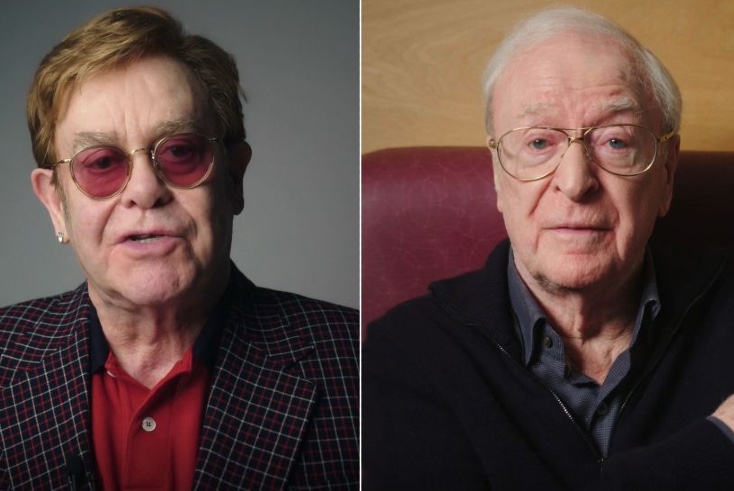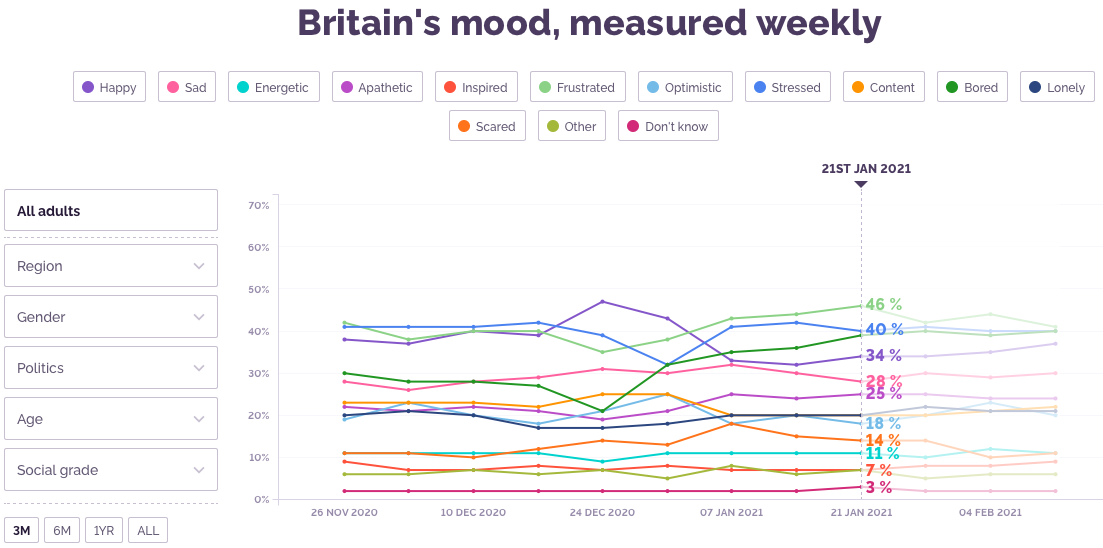Man bites dog: A behavioural view of this month’s news

After a month which saw the Covid-19 vaccine rolled out and the inauguration of a new American president, Tom Laranjo, managing director at behavioural planning agency Total Media, looks at recent news and gets to the bottom of the human behaviour behind the headlines
The rise and fall of consumer spending predictions in the UK
In the very same week as the Bank of England telling us that we are set for a post Covid-19 spending binge, the Financial Conduct Authority (FCA) Financial Lives Survey revealed that 15.9 million people predict their income will drop in the next six months and that 5.6 million people will need to use food banks. It is clear that there is no universality to the impact that Covid-19 is having on people in the UK.
The behavioural view: What will our behaviour look like as we emerge blinking into the sunlight?
While many behaviours adopted under Covid-19 restrictions will endure post-lockdown, the Bank of England is almost certainly right to predict a “great unleashing” when restrictions are lifted. With the YouGov National Mood tracker showing the two dominating emotions are boredom and frustration, it is clear the opportunity to let our collective hair down (or indeed, to cut it) will be mightily embraced.
As a brand, how do you plan for this? Marketers have an opportunity to cut through by understanding that the feeling of being trapped inside will be a near universal one. This means brands have a chance to speak to almost all of us with one message – hyper-personalisation can take a back seat for a while!
However, as this week’s FCA report shows, many people have not escaped Covid-19 unscathed, with 27 million now showing characteristics of financial vulnerability. Not everyone will have been able to save during lockdown and feel flush with cash to spend once it is over.
Whilst the emotional need to break out will be universal, economic positions will not. This represents a real moment for brands to demonstrate the strength of their commitments to their purpose and support customers at both ends of the spectrum.

Source: YouGov
A new digital bank launches in the UK
JP Morgan is the latest US bank to put its roots down in consumer banking in the UK, announcing it is launching a consumer-facing digital bank.
The behavioural view: Is there space for yet another bank?
The chances for success for JP Morgan come down to two competing drivers of behavioural change – anxiety vs life-change.
While people are more likely to change or break a habit at a moment of significant life change, such as a global pandemic, anxiety causes us to have a heightened sense of worry and to avoid options we perceive to be risky.
So the pandemic may create a wider number of people open to switching. Problem is, will they think JP Morgan is a risky bet?
The Government launches a star studded vaccine advertising campaign
In an attempt to reassure the public that vaccines are safe and effective, the NHS and the government have launched a new humorous ad campaign featuring Elton John and Michael Caine.
The behavioural view: Will the government’s new vaccine ad work?
While both Elton John and Michael Caine are well known and trustworthy figures, the ad isn’t likely to persuade people to take the vaccine. Instead, the rock star and actor are likely to appeal solely to those who already support or have taken the vaccine.
To help shift views, it’s important to remember we are talking to the vaccine-hesitant, not anti-vaxxers. According to a poll by JL Partners, while one in five people are reluctant to take the vaccine, only 7% say they will flat out refuse. This is important, because while the vaccine-hesitant can and do change their minds, anti-vaxxers often do not.
When addressing the vaccine-hesitant, the Government could use broad tactics to increase trust and reassurance, such as appealing to the social benefits of the vaccine, not just the individual benefits, or highly targeted techniques such as motivational interviewing – a process where physicians identify and address personal issues around vaccination.
Throwing Michael Caine into a big ad campaign, as well-loved as he is, feels a little bit like “blowing the bloody doors off”, when perhaps a more scientific approach would do the job better.




